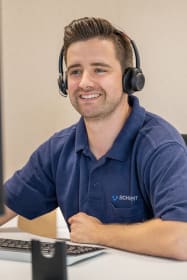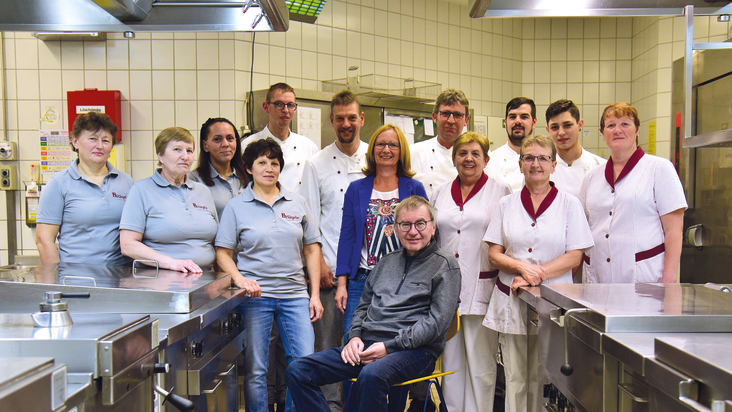Gerald Schubert, why did you choose Marcel Kiessling as your successor?
Gerald Schubert: After almost 30 years with the company, I decided to step away from the day-to-day running of the company and instead support the company in an advisory capacity as a shareholder of the Schubert Group. We therefore needed to look for a suitable successor at the beginning of 2016. First contact with Marcel Kiessling was made in June. After several meetings, it became clear that he was the perfect candidate for this role.
Which criteria influenced your decision in the end?
Gerald Schubert: In the end, it was a gut feeling. Of course, Marcel Kiessling’s CV ticked all the right boxes. The positions he held over several decades of his successful career were exactly what we were looking for, but ultimately, the personal impression he made was the deciding factor. Of all the candidates, Marcel Kiessling was the one who really seemed to understand what makes us tick in this family venture.
After Peter Gabriel, Marcel Kiessling is now the second member of the Executive Board who is not a Schubert by name. Does this mean that you are turning away from the idea of a family-run business?
Gerald Schubert: No, we intend to stick to the philosophy of an owner-managed company. After all, my son, Johannes as well as Ralf’s son, Peter, have already joined Schubert. The constellation with external parties in responsible charge is ideal, because they can prepare members of the next generation for their future tasks in the company.
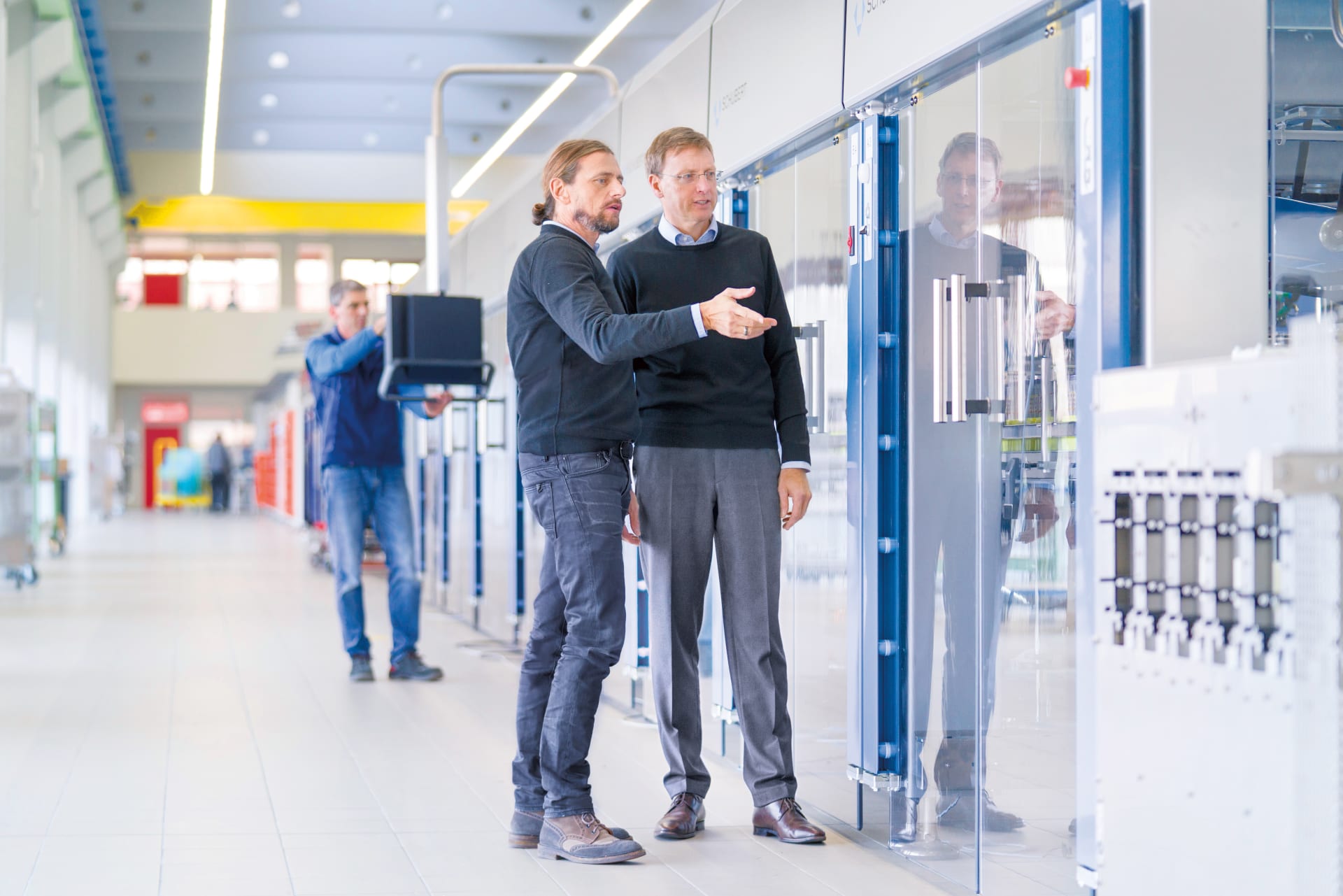
What specific changes will we see with Marcel Kiessling as Executive Director?
Gerald Schubert: Nothing will fundamentally change in the way the company is managed. Marcel Kiessling will focus on distribution and service. His international service experience is an important asset, which we can make good use of here at Schubert.
Mr Kiessling, which criteria made you decide to take on the Schubert challenge?
Marcel Kiessling: Schubert has developed technology that fascinates me, and has become an innovative market leader. Without a doubt, robotics is one of the key future technologies. This is evident from the discussion about KUKA, the specialist robot manufacturer. It’s an exciting prospect to work for such a pioneering branch of industry.
At the same time, I am particularly enthusiastic about partnering an outstanding company as it plans its future international growth. However, in the end, the human element was the deciding factor for me. Having mutual social values is an essential precondition. It is the only way we can work together confidently. My first impression of the Schubert family and of Peter Gabriel was that there was an open corporate approach. This impression has been confirmed in the first few weeks of my working here.
Recently, you were employed as a Member of the Board by Heidelberger Druckmaschinen AG; in other words, by a PLC with some 11,000 employees. So, what is the attraction of working in an owner-managed, mediumsized company?
Marcel Kiessling: Company size does not matter. It’s the task itself that is the decisive element. Compared with the printing machine business, the packaging industry offers much greater growth potential. Schubert can rely on steady business in a profitable market, and strives for strong growth. I’m looking forward to helping the company to internationalise further and to extend its range of services, which I consider to be an important element.
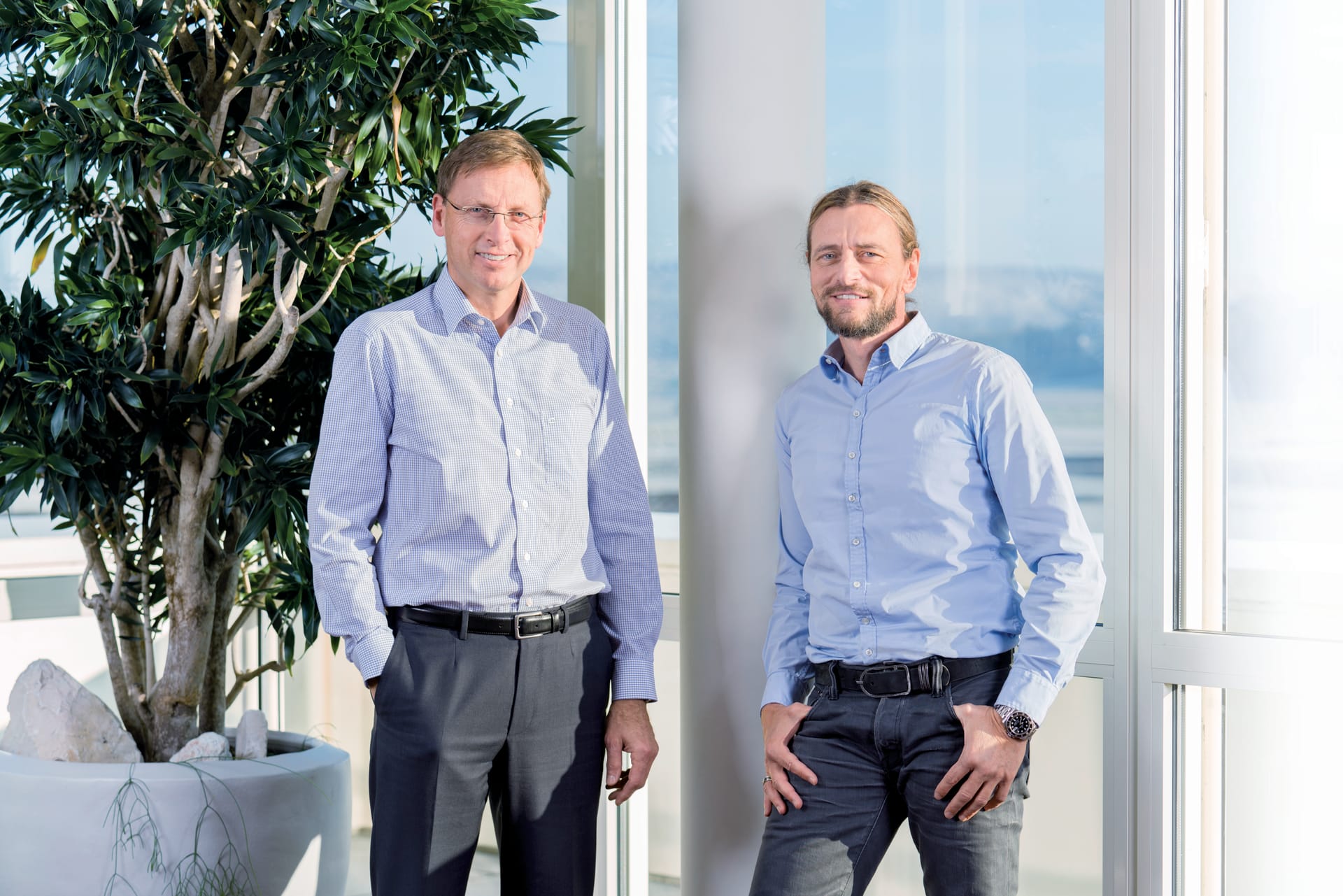
"Schubert will continue to build the most innovative solutions in the future. Together with our creative employees, we will make this happen." Gerald Schubert
Marcel Kiessling, what expertise do you bring with you to make your new task easier? What similarities do you see between Heidelberger Druckmaschinen and Schubert?
Marcel Kiessling: For a long time, I worked for an engineering company, in which market leading technology played a major part. During this time, I successfully introduced many innovations to the market; I also headed distribution and service companies worldwide. Having lived in the USA for six years and travelled extensively in Asia, I bring vast experience in international distribution and service. So, I’m confident that I know what customers expect, which is to be perceived as a sound and reliable partner. This is where I see similarities between Schubert and my former employer.
Is it not true that with internationalisation, progressive service considerations are a very important sales argument?
Marcel Kiessling: Customers expect a Schubert installation to be able to work with a very high technical availability factor. It is also important that the overall plant efficiency remains constant and, where possible, is raised to the highest possible level. Packaging industry customers expect this, as do customers of the printing industry. Schubert is already well placed. We are also able to further enhance our services.
Gerald Schubert: One important service aspect is digitalization. Machinery is continuously becoming more complex. At the same time, we find that many customers’ employees who install and operate the machinery are ever less qualified. Further digitalization and networking will enable us to support our customers in their production operations as well. With our digital platform – which is a work in progress – in future, we will be able to jointly monitor the operational state of a machine at any time, even if it is on the other side of the world. We will be able to identify problems before they arise and support our customers even better throughout the life cycle of the machinery.
Marcel Kiessling: The new Schubert technical platform facilitates both networking and interaction with the customer at the same time. It will make us better. We will also be able to help our customers to improve their processes and products. So, both sides will benefit. It is essential to learn something new from every single customer and every application. This is something we are working on.
Marcel Kiessling, during your first few weeks with Schubert, what impressed you, or perhaps surprised you most?
Marcel Kiessling: Although I have only been working for the company for a few weeks so far, I was most impressed by the open and cordial reception from my colleagues. And this applies both to Crailsheim and our international sites in England and America. I was equally surprised by the routine involvement of the company founder, Gerhard Schubert, during the working day. The employees have adopted the culture of his innovative spirit. Many of them are constantly seeking the next, or an even better solution.
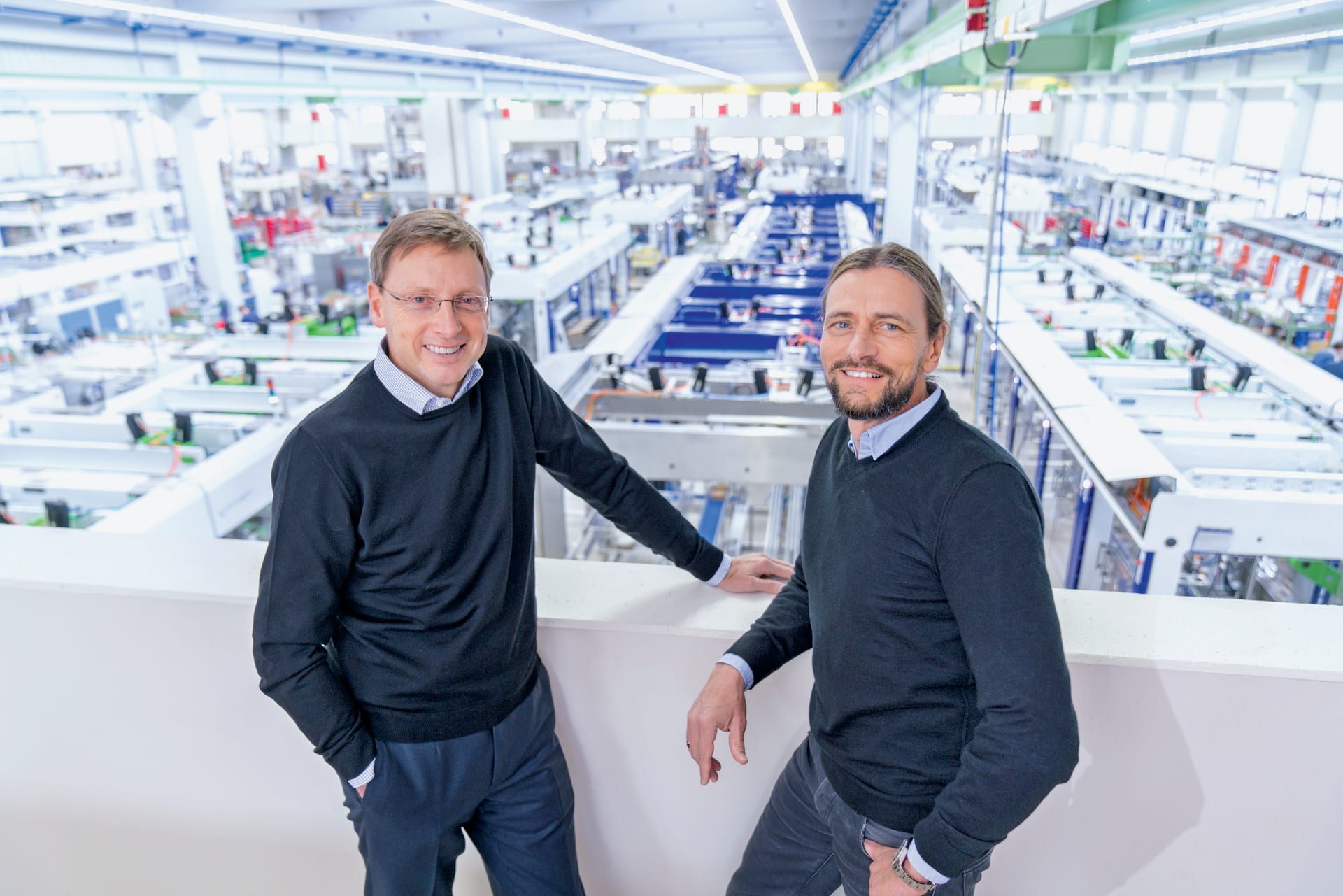
You, yourself, are from Heilbronn – so you are from this region in the broadest sense. What do you like about the mentality of the people here in this region?
Marcel Kiessling: There is a saying in Swabia: “Don’t talk about it, just get on with it!” People in this region and those working for Schubert are open, honest and down to earth. They work hard. I really appreciate that. In any case, I do have one advantage; I understand the dialect!
Many thanks, Mr Schubert and Mr Kiessling, for agreeing to talk to me today.
